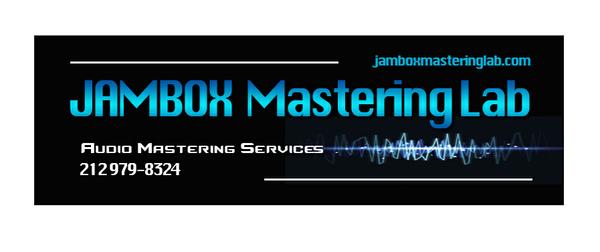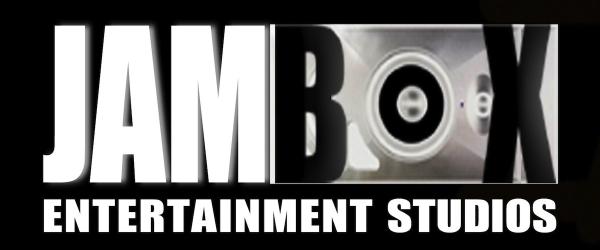10 Mastering Preparation Tips
Hi, this is Lee Evans, head Mastering Engineer at JAMBOX Entertainment Studios. We get many songs delivered to us for mastering at any given time. They all need a top notch job. We've been mastering music professionally since 1990.
A good mastering job is essential for your music to compete in today's Hi-Def Audio market. A good master is far from just making your music louder. Compare a good mix and a master at the same volume, can you hear a significant difference? Does it sound better or worse? Mastering quality can easily make or break a potentially good
song.
I'd like to share some prep tips to help deliver your final mix with proper formatting, in order to get the best possible master.
Prep tips:
- First of all, spend the necessary time to get the mix right. A good solid mix will produce a great master. Remember, mastering will bring out the best in your song, but it can also make the not so obvious problems more obvious. You may start to notice little things in your track that you never knew were there.
- Try to make your mix as distortion free as possible. Ask the Mastering Engineer if you can send your sample of the song for his 'quality approval.'
- Do not make your final mix levels too loud. Mastering Engineers need the extra 'headroom' to work their magic. -4-to -10 dbfs will work in most cases and keep you in the 'safe zone'.
- Too many times your recording engineer will want to max out the volume with a limiter or mastering plug-in. In this case, have them make 2 copies, One for listening and one copy according to 'spec' to send
- Do not 'Pre-Master' or attempt anything global to your mix that should be left for the Mastering Engineer. This does not help your project - it does the opposite.
- Do NOT put any processor or plug-in (i.e. compressor/limiter) across the master mix bus.
What audio formats are acceptable?
7. Try not to master mp3, mp4, or aac formats; these are compressed audio files that are lower in quality. You want to deliver your master formatted to offer the best quality.
8. We advise using 24 bit 44.1K Wav or AIFF files. BWF and SD2 are also acceptable. Mastering engineers can work with final mix audio copies from CD's however, these are 16 bit by default. They're usable, but not the best format.
All mixes should be final ‘consolidated’ files, not a multi-track Logic or Pro Tools Session, and should all be interleaved (not separate left and right files).
Please note: when saving your files, please make sure they are saved with a file extension, i.e. "myhitsong.wav" or "myhitsong.aiff" (the extension is .wav or .aiff)
More prep tips:
9. Including a song reference of a CD that you like is always a great idea, and helps us to pinpoint what you want your finished master to sound like. Hi quality MP3 format will work fine for this.
10. Discuss similar songs and their sound with your engineer to give him your direction, but at the end of the day, let the engineer do his magic. You should have a chance to make corrections later if needed.
Final Tip:
Loudness: We understand the desire to rush and play your hot new final mix for people, and the desire to make it as loud as possible. You may even think..."well...this sounds mastered" because it is mixed 'LOUD'! Well...do your thing with that, but PLEASE ask your audio engineer to make a version of the mix with no master bus processing. (ie no compressors, limiters, EQs,
etc inserted into the stereo mix signal path.) Once again, DO NOT max out the levels on this version. Give us about 6-10 db of headroom for us to make your final master sound stellar. (This means your mix should average around -6DB. You can make another version to play for friends etc. until your final master is ready. You can even feel free to try your own hand at mastering on this copy.
I hope this helps you on your way to a great sounding final Master!
Remember, Mastering can make or break the 'hotness' of your track.
Unless you feel ultra confident, leave it to the pros.
Hit us up and let us work our magic for you!
Please feel free to call with questions.
Lee Evans
Studio Director
A Division Of
JAMBOX ENTERTAINMENT STUDIOS
212.979.8324

